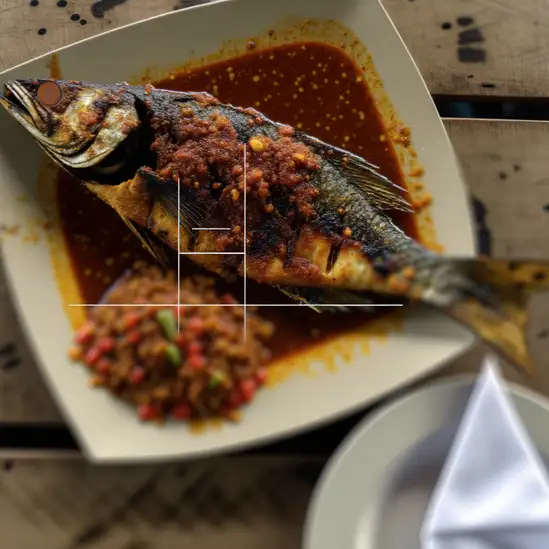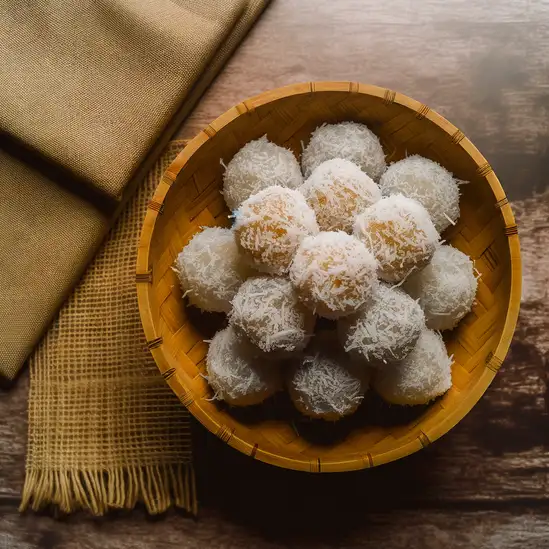



If you ever find yourself craving a place where the ocean breeze carries stories of spice traders and the laughter of locals fills the air,Ambon is where you want to be. This city pulses with a laid-back charm that feels like a warm embrace the moment you step off the boat or plane. The streets hum softly with the rhythm of daily life—vendors calling out their fresh catch,the scent of clove and nutmeg mingling with salty sea air,and the vibrant colors of traditional textiles fluttering in the tropical breeze. Walking through Ambon,you’ll notice how the city wears its history lightly,blending colonial architecture with lively markets and cozy warungs where the aroma of grilled ikan bakar (grilled fish) invites you to sit down and savor the moment. The locals are incredibly welcoming,their smiles genuine and their stories rich with the island’s diverse cultural tapestry. Music spills from open windows—sometimes the haunting melodies of Ambonese folk songs,other times the upbeat pulse of modern Indonesian pop. What really stays with you is the connection to nature here. Just beyond the city,turquoise waters lap against white sandy beaches,and the coral reefs teem with life,perfect for snorkeling or diving. Ambon isn’t about rushing from one tourist spot to another; it’s about slowing down,breathing in the salty air,tasting the fresh spices,and letting the island’s gentle rhythm seep into your soul. Trust me,it’s a place that invites you to linger a little longer and leave a piece of your heart behind.
The information on this page is currently being reviewed by Tripkliq and should be used as a guide only
Eng word: Hello
Eng pronunciation: Ha-lo
Local language: Halo
Eng word: Goodbye
Eng pronunciation: Se-la-mat ting-gal
Local language: Selamat tinggal
Eng word: Thank you
Eng pronunciation: Te-ri-ma ka-sih
Local language: Terima kasih
Eng word: How much
Eng pronunciation: Be-ra-pa
Local language: Berapa
Eng word: Toilet
Eng pronunciation: Toi-let
Local language: Toilet
Eng word: Help me
Eng pronunciation: To-long sa-ya
Local language: Tolong saya
Eng word: Yes
Eng pronunciation: Ya
Local language: Ya
Eng word: No
Eng pronunciation: Ti-dak
Local language: Tidak
Eng word: Excuse me
Eng pronunciation: Per-mi-si
Local language: Permisi
Ambon was colonized by the Portuguese in the early 16th century, leading to the establishment of a Portuguese fortress on the island.
In Ambon, the most common Power Adaptor is Type C, Type F.



Grilled fish marinated with a blend of spices, often served with sambal (chili sauce) and rice, showcasing the region's fresh seafood.

Yellow rice cooked with turmeric and coconut milk, often served with various side dishes, including fried chicken and boiled eggs.

Sweet rice cake balls filled with palm sugar and coated in grated coconut, often enjoyed as a snack or dessert.

A traditional sago porridge that is often served with fish in a rich, spicy sauce, commonly enjoyed by the local people.

A spicy condiment made from fresh chilies, tomatoes, and lime juice, typically served with grilled fish or meat.

A traditional raw fish salad made with marinated fish, lime juice, and spices, reflecting the local culinary heritage.
Bali feels like stepping into a vibrant dream where every corner pulses with life and warmth. From the moment you arrive,there’s this unmistakable energy—part spiritual,part playful—that wraps around you like a soft,tropical breeze. Imagine waking up to the gentle rustle of palm leaves and the distant sound of waves crashing against volcanic black sand beaches. The air carries a mix of frangipani blossoms and salty sea spray,instantly grounding you in the island’s natural beauty.
What really makes Bali special is its rich culture woven into everyday life. You’ll see locals in colorful sarongs offering flowers at temple steps,hear the rhythmic beat of gamelan music drifting through the air,and catch glimpses of intricate wood carvings and vibrant paintings in small artisan shops. The island’s spirituality isn’t just something you observe—it’s something you feel,a quiet presence that invites you to slow down and connect.
And then there’s the food—oh,the food! Freshly grilled satay,fragrant nasi campur bursting with spices,and tropical fruits so sweet they almost taste like candy. Whether you’re dining in a bustling market or a cliffside café overlooking the ocean,every bite feels like a celebration of Bali’s rich flavors and traditions. Honestly,Bali isn’t just a place you visit; it’s a place that stays with you,long after you’ve left.
Manado has this incredible energy that feels both vibrant and laid-back at the same time. When you stroll through its streets,you’re greeted by the lively chatter of locals,the scent of sizzling spices from street food stalls,and the occasional splash of the nearby sea breeze. It’s a place where the warmth of the people matches the tropical sun overhead,making you feel instantly welcome. The city’s colorful markets burst with fresh fruits,exotic flowers,and the catch of the day,inviting you to taste the rich flavors of Minahasan cuisine—think spicy sambal,fresh seafood grilled to perfection,and sweet tropical fruits that melt in your mouth.
What really sets Manado apart is its unique blend of cultures and traditions. You’ll notice the mix of indigenous influences alongside Chinese and Dutch heritage,all woven into the city’s architecture,festivals,and daily life. The local language dances in the air,and the smiles you get from the locals feel genuine,like they’re sharing a piece of their home with you. Beyond the city,the surrounding landscapes are jaw-dropping—lush hills,volcanic peaks,and some of the world’s best diving spots just a short ride away.
If you’re into nature and culture,Manado offers a rhythm that’s both exciting and soothing. Whether you’re wandering through the bustling Pasar Bersehati market,savoring a cup of local coffee,or watching the sunset paint the sky over Bunaken Island,you’ll find yourself drawn into a story that’s uniquely Manado’s. It’s a place that stays with you long after you leave.
If you ever find yourself craving a place where the ocean breeze carries the scent of sizzling street food and the hum of lively markets fills the air,Makassar should be at the top of your list. This city pulses with a laid-back energy that feels both vibrant and welcoming,like a friend inviting you to slow down and savor the moment. Walking along the waterfront,you’ll catch glimpses of traditional wooden phinisi boats bobbing gently,their sails catching the golden light of sunset,while fishermen call out to one another in a melodic rhythm that feels timeless.
Makassar’s streets are a feast for the senses. The aroma of grilled seafood—freshly caught and seasoned with local spices—wafts from warungs lining the alleys,tempting you to try coto Makassar,a rich,aromatic beef soup that locals swear by. The city’s mix of Bugis and Makassarese cultures shines through in its colorful markets,where vibrant textiles,handcrafted jewelry,and lively banter create a tapestry of daily life that’s both authentic and inviting.
What really makes Makassar stand out is its blend of old and new. You can explore centuries-old forts and mosques,then hop over to a bustling café where young creatives gather,blending tradition with modern flair. It’s a place where every corner tells a story,and every meal feels like a celebration. Trust me,Makassar isn’t just a stopover—it’s a place that stays with you long after you’ve left.
If you ever find yourself in Indonesia,Sorong is one of those places that sneaks under your skin in the best way. It’s a bustling coastal city with a laid-back rhythm,where the salty breeze from the Ceram Sea mingles with the hum of motorbikes and the chatter of locals. Walking through its streets,you’ll catch the vibrant colors of traditional markets stacked high with tropical fruits and fresh fish,while the scent of grilled seafood wafts through the air,tempting your taste buds before you even sit down to eat.
What really makes Sorong stand out is its role as the gateway to Raja Ampat,but the city itself has a character all its own. The people here are warm and welcoming,their smiles genuine and easy,reflecting a rich Melanesian culture that’s alive in the music,dance,and everyday life. At sunset,the harbor transforms into a golden spectacle,with fishing boats silhouetted against the fiery sky,and the gentle lapping of waves creating a peaceful soundtrack.
Don’t miss trying the local dishes—imagine fresh snapper cooked with fiery spices and coconut milk,or sweet sago pancakes that melt in your mouth. Sorong feels like a place where adventure and comfort meet,a spot where you can soak in authentic Indonesian island life before diving into the stunning natural wonders just beyond its shores. It’s a city that invites you to slow down,breathe deeply,and savor every moment.
Labuan Bajo feels like stepping into a vibrant postcard where the sea meets rugged hills,and every sunset paints the sky in fiery oranges and pinks. When you arrive,there’s this laid-back energy that wraps around you—locals chatting over fresh fish markets,the salty breeze mingling with the scent of tropical flowers,and boats bobbing gently in the harbor. It’s a place where time slows down just enough for you to soak in the simple beauty of island life.
Walking through the town,you’ll hear the lively chatter of fishermen,the clinking of glasses at cozy beachfront cafes,and the distant call of exotic birds. The streets are dotted with colorful warungs serving up spicy sambal and freshly grilled seafood that tastes like it was caught just moments ago. There’s a warmth in the smiles of the people here,a genuine friendliness that makes you feel instantly welcome.
What really sets Labuan Bajo apart is its gateway to the Komodo National Park. Beyond the town’s charm,you can dive into crystal-clear waters teeming with vibrant coral reefs or trek through dry savannahs to spot the legendary Komodo dragons. It’s a place where adventure and tranquility coexist,where you can lose yourself in nature’s wonders and then return to a hammock overlooking the calm sea,feeling utterly content. Trust me,Labuan Bajo isn’t just a destination—it’s an experience that stays with you long after you leave.
Ternate is a historic city surrounded by volcanic islands,offering unique landscapes,cultural heritage,and access to the beautiful Maluku archipelago.
ExploreUnlicensed money changers may offer poor exchange rates or shortchange tourists during currency exchanges.
Scammers may sell fake tickets for attractions or demand unofficial 'entrance fees' at public sites or beaches.
Individuals may pose as tour guides and offer to show tourists around, only to demand an inflated fee or provide subpar services.
Some rental services may claim damages to motorbikes that were pre-existing and demand compensation from tourists.
Some taxi or ojek (motorbike taxi) drivers may overcharge tourists, especially if they are unfamiliar with local rates or do not negotiate the price beforehand.
In crowded areas, pickpockets may work in teams to distract tourists while stealing their belongings.
Vendors in tourist-heavy areas may inflate prices of souvenirs or local goods, assuming tourists are unaware of the actual value.
Indonesia has extremely strict drug laws, and Ambon is no exception. The possession, use, or trafficking of illegal drugs can result in severe penalties, including long prison sentences or even the death penalty. Tourists should avoid any involvement with drugs and be cautious about carrying prescription medications, ensuring they have proper documentation if required.
In Ambon, Indonesia, smoking is generally allowed in public spaces, but there are restrictions in certain areas such as government buildings, schools, hospitals, and places of worship. Many restaurants and cafes may have designated smoking areas. Tourists should be mindful of 'No Smoking' signs and avoid smoking in prohibited areas to avoid fines.
Vaping is not as widely regulated as smoking in Ambon, but it is generally treated similarly. Tourists should avoid vaping in non-smoking areas and be respectful of local customs and regulations. It is advisable to check with local authorities or establishments if vaping is permitted in specific locations.
What are other people saying about Ambon?
Recent Social posts about Ambon
There is nothing to show you for now.